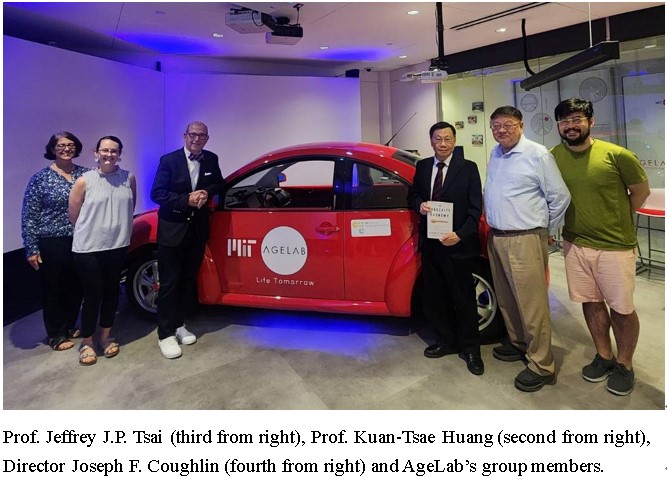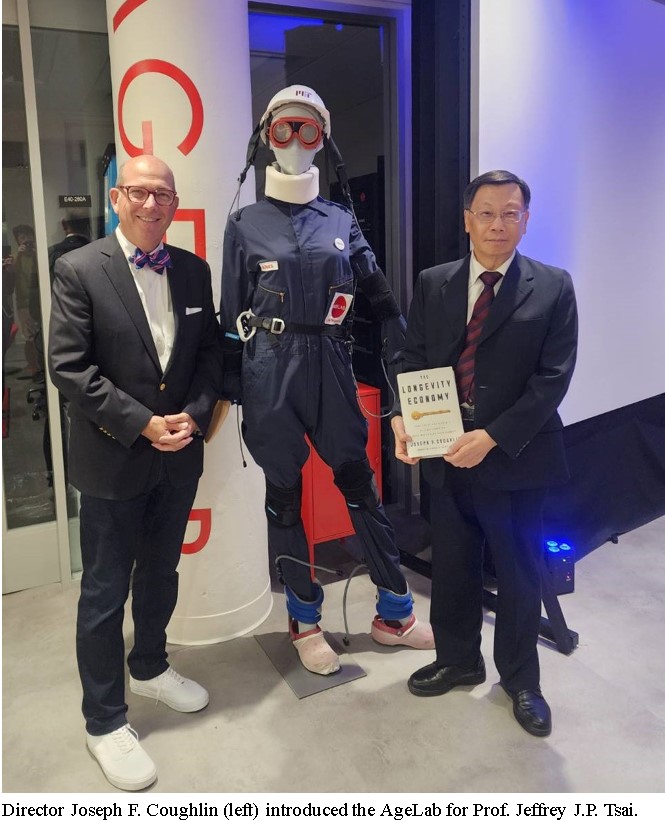 Prof. Jeffrey J.P. Tsai announced that AU is implementing the four-year project “The Strong Kidney Initiative” funded by the National Science and Technology Council, which includes home care for kidney disease patients. End-stage renal disease is prevalent in Taiwan, with an annual healthcare cost exceeding 5 billion Taiwan dollars. However, there has been little improvement in the situation, mainly due to the lack of comprehensive data support. Therefore, integrating big data, blockchain technology, and artificial intelligence to establish a mutual data ecosystem has led to the world's first “Blockchain Hemodialysis Care Platform”.
Prof. Jeffrey J.P. Tsai announced that AU is implementing the four-year project “The Strong Kidney Initiative” funded by the National Science and Technology Council, which includes home care for kidney disease patients. End-stage renal disease is prevalent in Taiwan, with an annual healthcare cost exceeding 5 billion Taiwan dollars. However, there has been little improvement in the situation, mainly due to the lack of comprehensive data support. Therefore, integrating big data, blockchain technology, and artificial intelligence to establish a mutual data ecosystem has led to the world's first “Blockchain Hemodialysis Care Platform”.In recent years, the Taiwan government has been actively promoting home dialysis to simplify the process for patients, reduce the physical burden, and lower treatment costs. AU will leverage its technological advantages in AI, medical big data, and the Internet of Things (IoT) to develop patient-centered home-care models for kidney disease patients, allowing doctors to have real-time insights into the dialysis process, and family members to stay informed. Through the collaboration with MIT AgeLab, this project will expand its scope to enhance and broaden its application to home care for kidney disease patients.
 Considering the global aging population and declining birth rates, the development of the “Social Care Robot” has become a key goal. Prior to this visit, AU had already convened discussions among various departments including social work, nursing, psychology, physical therapy, and interior design, to prepare for interdisciplinary and intercollegiate collaboration. The collaboration with MIT AgeLab aims to collect behavioral data through a big data platform and develop a social care robot that can provide interactive companionship, cognitive stimulation, physical and mental health care support, health care consultation, physical therapy, and smart home environment design for the elderly. The goal is to offer senior citizens a higher quality and more intelligent home care experience.
Considering the global aging population and declining birth rates, the development of the “Social Care Robot” has become a key goal. Prior to this visit, AU had already convened discussions among various departments including social work, nursing, psychology, physical therapy, and interior design, to prepare for interdisciplinary and intercollegiate collaboration. The collaboration with MIT AgeLab aims to collect behavioral data through a big data platform and develop a social care robot that can provide interactive companionship, cognitive stimulation, physical and mental health care support, health care consultation, physical therapy, and smart home environment design for the elderly. The goal is to offer senior citizens a higher quality and more intelligent home care experience.Professor Joseph F. Coughlin introduced AgeLab's collaborative efforts with businesses, governments, and non-governmental organizations, which apply a consumer-centric systems thinking to understand the challenges and opportunities in the differences between the lifestyles of the elderly and the new generation. AgeLab fosters innovative business models and places a strong emphasis on establishing a comprehensive overall ecosystem that supports older individuals and caregivers promoting sustainable development in the field.

